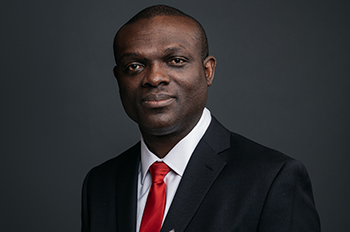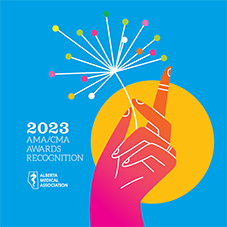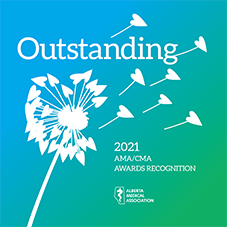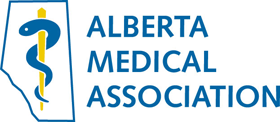AMA Award for Compassionate Service
The AMA Award for Compassionate Service honors a physician who is an AMA member and, during their career, has demonstrated outstanding compassion, philanthropy and/or volunteerism to improve the state of the community in which they are giving back.
Compassionate service is viewed as
- Demonstrating a significant and extraordinary contribution to volunteer or philanthropic efforts.
- Enhancing the reputation of physicians as compassionate members of the community by giving back locally, nationally or internationally.
- Going outside of one's normal duties and practices to care for others who would otherwise not receive care or support.
Read further criteria for this award. View past recipients.
Nomination
Please submit the following to the Chair of the AMA Committee on Achievement Awards c/o Sarah Zieminek, AMA Public Affairs, via email to sarah.zieminek@albertadoctors.org:
Please include the following items with this nomination form:
- Cover Letter: Your cover letter should provide a brief summary describing how the member has demonstrated compassionate service, philanthropy and/or volunteerism as outlined in the award criteria.
- Letters of support: When submitting your nomination, please include two to four letters of support. The Committee on Achievement Awards finds that when reviewing the submitted nominations, letters of support for the nomination are very useful in order to characterize the broad impact of the nominee.
- Contributions relating to award criteria: Please clearly define how the nominee has met the award criteria in their contributions to quality health care in Alberta. Relate in detail the nominee’s outstanding personal achievement beyond normal expectations.
- The nominee’s curriculum vitae
Deadline for nominations has been extended to June 7.
Recent recipients
2023
Dr. Katherine (Kathy) Atchison
Since graduating from medical school in Saskatoon, Kathy Atchison has been serving her patients as a busy family doctor, mostly in Red Deer.
She has an active panel of nearly 3,500 patients, works on her clinic’s obstetrics team, has acted as department physician for FireMedics for the City of Red Deer and has served as a clinical preceptor in Red Deer for the University of Alberta since 2000, in which role she was awarded Family Medicine Preceptor of the Year in 2012. She serves as a mentor for many young doctors, taking on residents whenever she is asked. In this role, she takes on the roles of teacher, guide and colleague for the next generation of doctors. She shares with them her passion for the profession, her knowledge of medicine and her compassion for those she serves.
What really sets her apart, though, is her passion for helping others, for volunteering and for philanthropic efforts in her community. She served for many years on the Central Alberta Sexual Assault Team, where she provided care to victims of sexual assault, treating them with compassion and respect, collecting forensic data and appearing in court as an expert witness. More recently, she has begun working in palliative care, providing compassionate care for palliative patients and their families.
She dedicates almost every Wednesday evening to running a drop-in family clinic at The Mustard Seed. Before she offered to volunteer and to open this clinic, there was no clinic at The Mustard Seed or anywhere in the Riverside Meadows neighbourhood, one of Red Deer’s lowest income areas. Dr Kathy, as she is affectionately known by the guests there, many of whom have had difficult or negative experiences with the health care system in the past, has become a critical part of The Mustard Seed’s health and wellness program for the community, meeting needs wherever people are at, developing relationships and gaining their trust. She listens to people’s needs, treats them with respect and offers them compassionate, consistent care; something many of them have had little experience of in the past.
In 2016 she received a Woman of Excellence Award from the Red Deer and District Community Foundation in recognition of how greatly she had contributed to her community. Since then, she has continued to exemplify what it means to be a doctor, earning the respect and affection of her colleagues, her patients and members of her community.
2021
Dr. Sumantra Monty Ghosh
Double Honoree 2021
Addiction and Internal Medicine, Calgary
Dr. Monty Ghosh is a passionate advocate for vulnerable and marginalized people, determined to give voice to those whose voices are rarely heard. Through advocacy, compassion, and respect, he continually supports the motto “Nothing About Us Without Us.”
Dr. Ghosh completed his medical training at the University of Calgary in 2009, to which he has added specialized training in a number of areas, particularly in addiction medicine, and works as an assistant clinical professor both there and at the University of Alberta. He is a Fellow of the Royal College of Physicians and Surgeons of Canada (FRCPC) in Internal Medicine and has served with the Canadian Society of Addiction Medicine (CSAM) and been appointed president of the Section of Addiction Medicine.
“I am driven,” he says, “to facilitate change and create impactful improvements in social and health outcomes for my patients and to empower agencies to develop programs that fill gaps for vulnerable populations.” The communities he serves include Indigenous people, LGBTQ, refugees, people with a history of incarceration, addiction, homelessness, HIV, and Hepatitis C. He works with Collaborative Home and Health (CHH) in Calgary, which seeks health solutions for Calgary’s vulnerable population sector with multiple partner agencies such as Alpha House and The Drop In-Centre, and co-chairs the Canadian Network for the Health and Housing of the Homeless, which aims to facilitate national level knowledge sharing and cross-sectoral learning for social support sectors and to catalyze advocacy with the goal of ending homelessness. His work has been published in a variety of journals, and he has authored training programs in addiction medicine and treatment. He is a sought-after speaker who regularly educates physicians, allied health professionals, and the media about addiction medicine and Alberta’s vulnerable populations. He has received multiple grants and awards for his work, including the Patient Excellence Award from the Health Quality Council of Alberta and grants from the Calgary Health Trust and the Health Canada Substance Use and Addiction Program.
Dr. Ghosh believes strongly in community collaboration, and that includes making sure voices from the street are heard in program development and policy change. Positive change can only happen when we listen to people with lived experience of vulnerability. He has been called a community champion for the most disadvantaged citizens in Calgary.
Dr. Ian Mitchell
Respiratory Medicine, Calgary
Dr. Ian Mitchell has, for more than forty years, achieved and promoted excellence in the medical care of children and in medical bioethics. As a volunteer, he has sat with every Southern Alberta bereaved parent who has contacted the Sudden Infant Death Syndrome Calgary Society and answered their questions until they had no more.
Defying political authority and risking his own job, he led protests in the 1990s to protect the Alberta Children’s Hospital from closure as a stand-alone facility. Because of Dr. Mitchell and others, Southern Alberta children continue to benefit from a discrete medical facility that places the child at the center. Dr. Mitchell seems to awaken every morning asking himself, “How can I help children and their families today?” And then he acts––listening carefully to a baby’s lungs, teaching students, conducting research on pediatric conditions and complicated ethics issues, serving and directing organizations so that they might better serve children and their families.
He received his medical training in Scotland and came to Alberta in 1982. After his arrival, he was asked to volunteer with a SIDS family support group, created by the families themselves, as an unpaid advisor. Over the years, as clinicians involved in supporting SIDS families tried to learn one from another, Dr. Mitchell helped establish collaborations across Canada and internationally.
Through his volunteer and his professional work, he developed an interest in biomedical ethics, to which he has made extraordinary, exemplary, and sustained contributions that inspire others locally, nationally, and internationally. He not only teaches and writes about ethics, but he also acts in ethical and courageous ways––working with patients and their families, leading advocacy efforts, and pressing public officials to act to protect the health and wellbeing of Albertans.
Dr. Mitchell has won multiple awards for his work as a clinician, an advocate, and a teacher and mentor, including the Lorraine Award of Excellence in Respiratory Disease and Care from the Alberta Lung Association in 2003 and the Canadian Medical Association’s Dr. William Marsden Award in Medical Ethics in 2013, given to individuals who have demonstrated exemplary leadership, commitment, and dedication to the cause of advancing and promoting excellence in the field of medical ethics in Canada. For the latter award, he was described as exemplifying “insight, innovation, and fearlessness,” often basing his advocacy for children on the social determinants of health, motivated by the knowledge that children usually cannot advocate for themselves. Humble, industrious, incisive, brilliant, and courageous, Dr. Mitchell is living a life of service to children, their families, and the medical community in Southern Alberta, Canada and beyond.
2020 - Special Commendation
The Committee on Achievement Awards recommended that the AMA confer special recognition in 2020 on specialists in Public Health and Preventive Medicine for their hard work during the COVID-19 pandemic. Their dedication to protect Albertans in such a crisis and under such pressure is remarkable and worthy of our deepest respect. We acknowledge their leadership contributions, not only in the wake of the pandemic, but also in the continuous collaborative efforts to promote health and well-being of Albertans through various public health initiatives, projects and programs.
This specialty area sometimes misses the profile that other specialties enjoy with the public. COVID-19 has brought them to the forefront as our daily guides to health and safety. Alberta’s Chief Medical Officer of Health Dr. Deena Hinshaw and colleagues have been critical to Alberta’s response to the pandemic.
AMA salutes these colleagues for managing the tide of emerging evidence and crafting sound policy under extreme pressure. While COVID-19 grabbed the spotlight for much of 2020, the day to day work, year in and year out, of these specialists makes our province a safer place to live.



